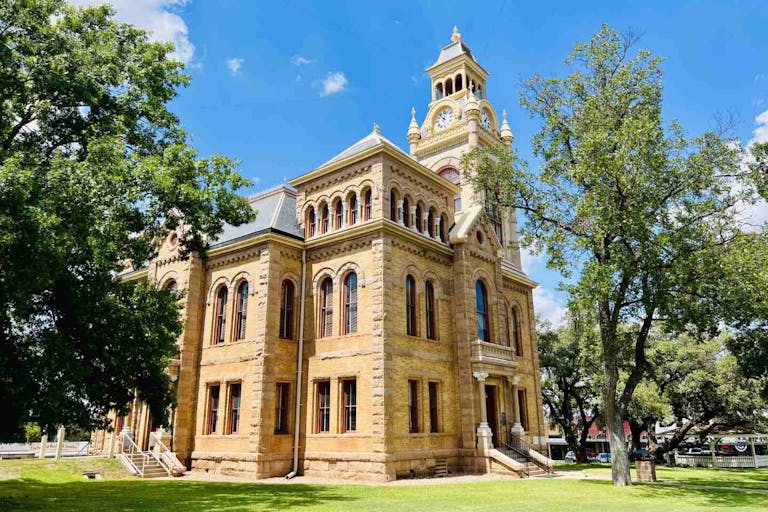
Texas library can keep sexually explicit material from minors... for now
Sheena Rodriguez
·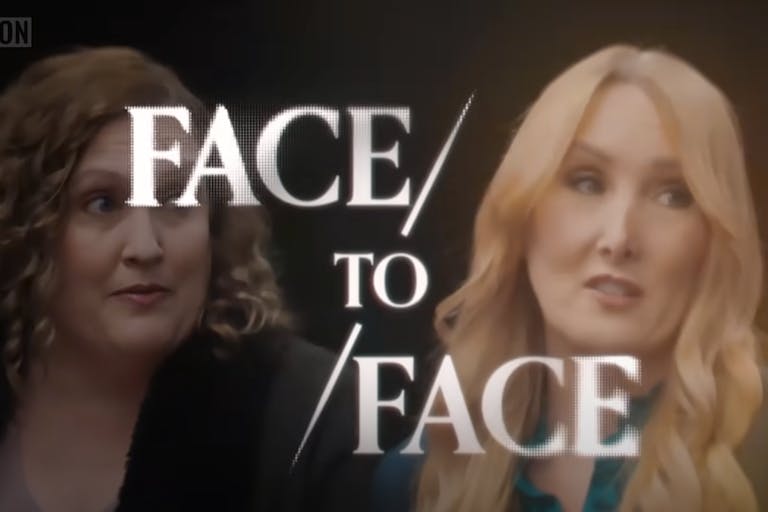
‘I do have value’: People conceived in rape come ‘Face to Face’ in Live Action video
In the latest episode of Live Action’s “Face to Face” series, people who were conceived in rape discuss their stories and how it has affected their lives.
The conversation, moderated by Live Action founder and president Lila Rose, hits back at the notion that someone who is conceived in rape is less deserving of life.

Anna Farrens learned at age 12 that she had been conceived in rape, and the reality was devastating.
“I felt like I lost my place in the family instantly. I didn’t know how to process what I had just learned, and my parents tried to support me in the way that they could… but my way of processing that information was to keep it a secret, and to kind of stuff all that shame down,” she said.
Farrens explained that for the next decade, she struggled, trying to numb her pain with alcohol and drugs. When she was in her 20s, she admitted everything out loud to a therapist for the first time. “I felt a weight lifted off my shoulders. I don’t know what I was expecting. I thought people were going to be repulsed, or maybe angry, that I was here.”
Though she had always been pro-life, she also heard people frequently argue that it should be legal in cases of rape or incest. And when she saw Live Action videos explaining what happens in an abortion, she said it was “intense,” because “I truly didn’t know the mechanics of pulling apart a live human being to abort a baby.”
Her mother was a devout Catholic, and after she was raped, she was adamant about not getting an abortion. Her husband, on the other hand, “was not on board with keeping the baby. They were traumatized,” she said. “He was angry with the attacker.” But her mother insisted that she didn’t want to “suffer more violence.”
Eventually, after a meeting with their parish priest, Farrens’ father had changed his mind. She said that he “has told me that he walked into the meeting unsure. And by the end of that meeting, he was overjoyed to welcome me into their lives.”
Rebecca Kiessling was 18 when she learned how she had been conceived, and her mind went immediately to the arguments — even among pro-life activists — that abortion should always be legal in cases of rape.
“I instantly felt targeted and devalued by society. I asked my adoptive father, ‘How do you feel about abortion and what about cases of rape?’ And he started to say, ‘Well, I’ve always felt like, who am I to say what a woman can or cannot do with her own body?'”
She continued:
And I immediately said, ‘You mean to tell me that my birth mother’s, like, her body, her choice was more important than my whole entire life? Like, really, Dad? You really believe that?’
And he instantly snapped out of it, and he said, ‘No, I don’t believe that. Wow, how would I ever get to a point where I would believe such a thing? I mean, especially as an adoptive father.’
And he said that being a professor on a liberal campus, that it was just expected that if you were progressive-minded, you would be pro-choice. And so I was able to instantly change his mind about abortion.
Article continues below
Dear Reader,
Have you ever wanted to share the miracle of human development with little ones? Live Action is proud to present the "Baby Olivia" board book, which presents the content of Live Action's "Baby Olivia" fetal development video in a fun, new format. It's perfect for helping little minds understand the complex and beautiful process of human development in the womb.
Receive our brand new Baby Olivia board book when you give a one-time gift of $30 or more (or begin a new monthly gift of $15 or more).
But then when I met my birth mother a year later, she told me that if it had been legal, she would have aborted me.
Her birth mother did go on to have two illegal abortions, and almost went through with aborting Rebecca. She continued to insist that she wished she could have had an abortion for six years — until she finally became pro-life.
“By the time she shared that with me, I knew my worth,” she said. “I’m not worthless, but priceless. And all of you are, too. And it’s out of gratitude for my life being spared that I want others to have the same. I’m just as worthy of love and life as anyone else, but so are all of those who are being aborted every day.”
Still, she pointed out that her worth is not something everyone recognizes. “We get called monstrous child, demon seed, evil seed, horrible reminder, tainting the gene pool. I’ve been called a rape trophy, and even told that if you cared about your birth mother at all, you would have killed yourself a long time ago,” she said. “So I’ve definitely got a lot of the brunt of it. And we are despised for no sin of ours…. It’s amazing how these same people are so quick to give the death penalty to the innocent child.”
Like Rebecca, Steventhen Holland did not know he was conceived in rape, and found out when he was 27. He was only told he had been adopted at the age of eight, despite being biracial and living in a white family, but even then, they kept the details of his conception from him. When he did find his mother, it was an emotional moment.
“I actually found my birth mom, tracked her down. And I call her my hero, because I found out that she was raped by five men…” he said. “… and they were pressuring her to abort me every day. And she fought for me. She carried me, homeless by the end of the pregnancy, living on the streets, and chose life for me.”
Previously, he had wondered why his mother didn’t want him, and questioned his own worth.
“Even though I knew I was loved, that that was still something I was longing. I didn’t even realize I needed it until I met my mom, when she… looks me in the eyes and said, ‘I love you,'” he said. “‘I would have never given you up, you know, if I could have kept you.’ And I needed to hear that because I do have worth. I do have value.”
Lisa grew up as one of four adopted children, and always felt she was special for having been chosen through adoption. It wasn’t until she found her birth mother while in her 20s that she realized she had been conceived in rape.
“It actually made me think and appreciate her so much more for choosing life,” she said. “And she never thought about aborting me. She wanted me to be in a family where I had two parents that could give me what I needed…. So I never struggled with the identity of being from rape.”
Instead, she said it helped her to better advocate for life against abortion, educating them that her life matters and has value, too.
“My identity is not found in the fact that I was born out of rape. My identity is found in Christ,” she said. “I feel like educating — especially our youth, because I’m a teacher — explaining to them those situations so they understand, because we’re inundated with it in society. And so I think when they can put a face to someone that was born out of rape, a lot of times that changes their perspective when they can see how God has used my life.”
Watch the entire video to see the rest of their discussion.
Live Action News is pro-life news and commentary from a pro-life perspective.
Contact editor@liveaction.org for questions, corrections, or if you are seeking permission to reprint any Live Action News content.
Guest Articles: To submit a guest article to Live Action News, email editor@liveaction.org with an attached Word document of 800-1000 words. Please also attach any photos relevant to your submission if applicable. If your submission is accepted for publication, you will be notified within three weeks. Guest articles are not compensated (see our Open License Agreement). Thank you for your interest in Live Action News!

Sheena Rodriguez
·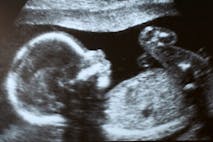
Politics
Madison Evans
·
Opinion
Nancy Flanders
·
Investigative
Carole Novielli
·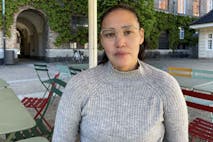
International
Cassy Cooke
·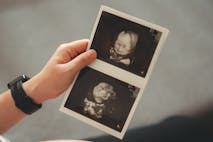
Analysis
Nancy Flanders
·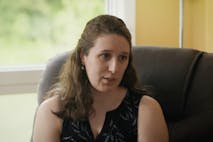
International
Cassy Cooke
·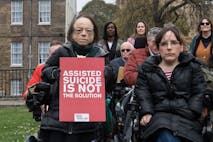
International
Cassy Cooke
·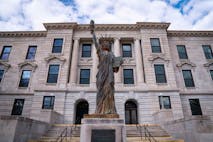
Politics
Cassy Cooke
·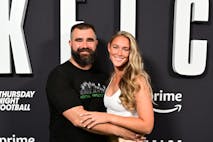
Pop Culture
Cassy Cooke
·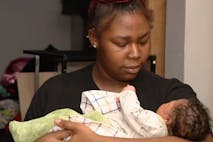
Human Interest
Cassy Cooke
·